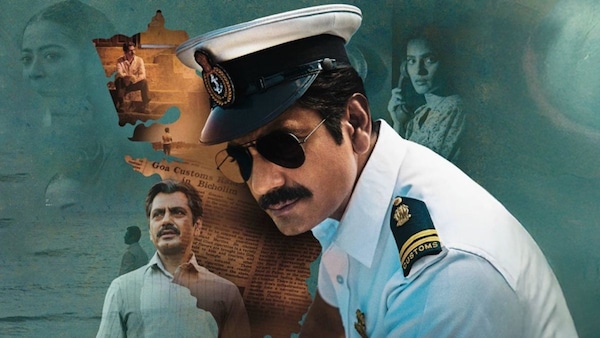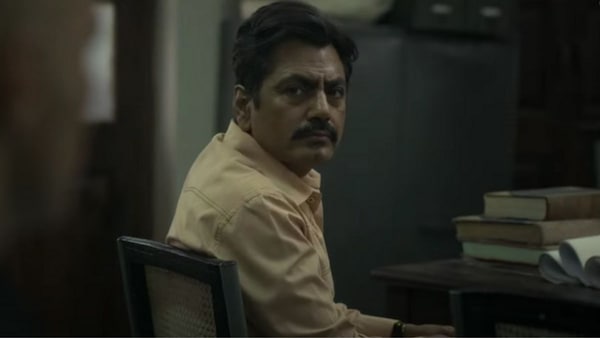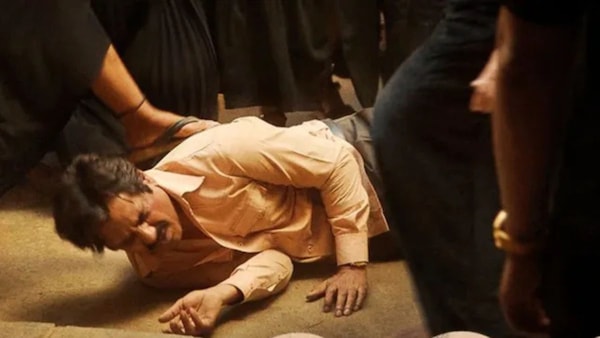Nawazuddin Siddiqui's Costao Is A Watchable Biopic
Costao stumbles in execution, its wry narrative obstructs the compelling nature of the story. Nawazuddin Siddiqui, despite being a fine choice on paper, never quite inhabits the character on screen.

Promo poster for Costao.
Last Updated: 09.49 PM, May 02, 2025
BIOPICS, of late, have garnered a contentious reputation in Hindi cinema and for good reason. The genre is used as a shorthand to elevate personhood without any curiosity about the person. It has devolved into an excuse to reiterate the persona without probing into the undersides. Take any biopic in the last decade, and a common problem of reverence can be found. Sejal Shah’s Costao, a dramatised recreation of the customs officer Costao Fernandes’ life, sidesteps this loop of veneration, resulting in a sobering portrait of a man without the baggage of heroism.
While working at the Goa customs, one of the main highlights of Fernandes’ career was getting accused of murdering a smuggler, Alvernaz Alemao. The legend goes that in 1991, Costao went unarmed to stop a gold shipment, and during a fight that ensued, in which both men were hurt, Alemao died. What followed was a long-drawn-out case to prove Costao’s innocence.

Given the embellished way such stories are told, one would assume a heightened court drama to be the centrepiece of Costao Fernandes’ life. Shah not just arrives at it much later, but even when she does, imbues the proceedings with quiet mundanity. In her clear-sighted vision, the case is portrayed with ordinariness because it was interrupted by life and not the other way around. The collision had consequences—the film depicts Costao’s marriage falling apart, his children growing up with their mother, and him taking a transfer to Mumbai—but none defined his life even when they continued to shape it.
This interesting shift proves to be more rewarding as the film unravels. It opens with establishing Costao’s affinity for sports (he got the job through sports quota) and goes on to underline his personality without using easy shorthands. If anything, in Shah’s hands, the person that Costao was during that time is outlined with a precision that feels accurate for being so normal. His honesty comes across as second-nature, a part of who he was and not something ancillary that he prided himself on being.

Written by Bhavesh Mandalia and Meghna Srivastava, the film embraces this grounded approach in other aspects as well. If Costao refuses to view the protagonist as a hero for doing his job, then it also resists victimising him when he faces the consequences of doing his job. Even as the case is underway, the narrative is not sculpted for redemption. In a thoughtful swerve, it does not include the final judgement, which, otherwise, is presented with rousing background music and emotional reaction shots.
The humanisation of the central character extends to others as well, mostly to the supposed antagonist. In the film, Costao (Nawazuddin Siddiqui) and Peter (Hussain Dalal) get into a scuffle, and as the latter dies, we see his grief-stricken widow attending the court sessions. If she mourns her husband's absence, then Costao’s wife Maria (Priya Bapat) fights with her husband for his prolonged absence. It is not drawing equivalence that the film is after, but declining to see a person through the confines of an act.

Costao, however, stumbles in execution and the wry narrative obstructs the compelling nature of the story. This aligns with the central performance by Siddiqui. He is a fine choice on paper, but the actor never quite inhabits the character on screen. Instead, his mannerism accompanies his portrayal, underlining his presence with forceful clarity. Shah’s film might not always be effective in its subversion of the biopic genre, even if it is more in intent, it works for Costao more than it does not.
